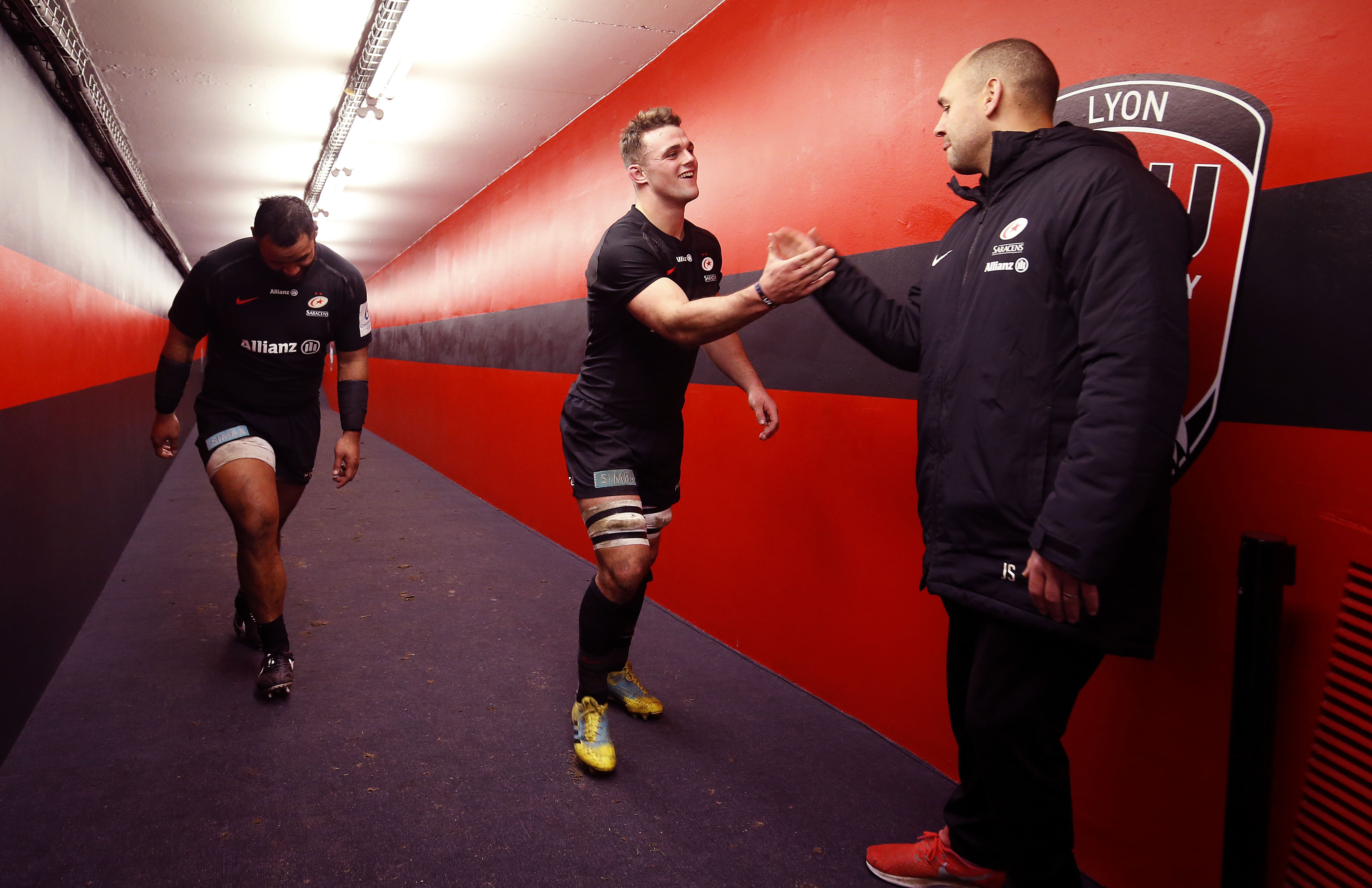As the five-times English Premiership Champions and three-times European Champions Cup winners, Saracens are arguably the most successful English rugby club in the modern era. In this blog, we chat with Joe Shaw, the Saracens Skills and Attack Coach, and gets his thoughts on how organisations can develop purpose-driven values and create enviable cultures for their teams – whether in sport or business.
North Highland: Can you describe how Saracens transformed their culture?
Joe Shaw: About 10 years ago, there was a conscious decision made to make the Saracens culture all about people. We’re dedicated to putting genuine care, time, and investment into every individual, encouraging players and coaches to reach their full potential. From back office staff and the newest 14-year-old academy recruit to international stars such as Billy Vunipola and Owen Farrell, each person is treated with respect. When someone shows a genuine care for people and their families, it inspires everyone to work hard and go for gold. But culture is something which you have to constantly work on, it’s not a one-time thing.
 All photo credit to: Saracens/Matt Impey
All photo credit to: Saracens/Matt Impey
North Highland: Talk to us about Saracens’ core values of honesty, discipline, work rate, and humility.
Joe Shaw: Our whole club is centered on relationships. We treat people incredibly well, and in return, we ask that they give everything when they come to work. If you want to be successful in whatever you do, you need work rate and discipline. And if you’re relationship-based and want to be a good person, then honesty and humility are critical drivers of success. Company values are an essential part of our culture, but if they aren’t distilled and enacted in everyday life, they’re meaningless.
 All photo credit to: Saracens/Matt Impey
All photo credit to: Saracens/Matt Impey
North Highland: How do these core values relate to the caring culture you’ve cultivated?
Joe Shaw: To live your values, a mindset focused on continuous improvement must be adopted. We truly care for our players, coaches, and their families. For example, we have a crèche for the players’ kids and we encourage the families to eat with the players and staff. I then get to meet players’ wives, meet their kids, and they meet mine. If we’re going to dinner together or celebrating the end of the season, we want to have a good conversation about their story. Imagine coming from the other side of the world and having that trust. This makes us tighter because everyone’s included. Our care for the players extends to their family. It’s about bringing your ‘whole self’ to work. I firmly believe that organisations which create anxiety and short-term thinking don’t get the most out of their people.
North Highland: How do you translate the vision and the values into results?
Joe Shaw: We make memories together with a commitment to ‘Social Capital.’ When we meet each other years down the line, we want to discuss the memories we shared and the bonds we built on and off the field. As an example, we recently went to a ski resort and a player from the South Pacific islands said, “I’ve never seen snow before. I’ve never been on top of a mountain before.” We had an incredible moment together which can’t be replaced. It’s about developing lifelong friendships.
When we’re away on these bonding trips, a lot of our dinnertime conversations are guided by three or four questions designed to get to know each person’s likes, dislikes, and individual stories. I’ve learned that you can unintentionally pigeonhole someone, and it can be far from the truth. The closer and tighter we can get as people outside of the game, and the more we trust each other, makes us a better, more winning team.
My first day at the club, I was given a beautiful, handwritten letter from the owner, detailing everything he thought I could bring to the organisation. These are things he couldn’t have known without delving into the depths of my story. Built upon that connection on day one, we continue to forge a lifelong friendship and commitment to achieving great things together.
The mindset of getting better and pushing forward every day must remain our mantra. Culture and values and vision are easy words to throw out there, but it all needs continuous improvement and attention on and off the pitch.
 All photo credit to: Saracens/Matt Impey
All photo credit to: Saracens/Matt Impey
North Highland: What is the relationship like between staff and players?
Joe Shaw: We spend hours carefully identifying which coach is the best fit for each player. That coach then acts as a mentor to the player and helps get to the bottom of what’s going on at work and at home.
North Highland: What is your approach to mental health?
Joe Shaw: All the lads are very closely connected. We hope that, given the closeness of our relationships, that challenges would be noticed and acted upon quickly. We have a psychologist, we have people come in to talk about mental health, what triggers exist, what they can expect from being on the team, and how problems can manifest. We teach players strategies to effectively handle emotional highs and lows – from popularity to depression. We do everything we can to ensure everyone’s mental health is a priority.
North Highland: How do you foster resilience in players?
Joe Shaw: We train for resilience. On the pitch scenarios can change in an instant and players must be prepared. We have appointed players who we call Generals. They take control in the event of certain specific scenarios, for example, how do we defend if we lose a player to the sin bin. It’s about shared leadership and, if we lose, we learn from it.
HIGH-PERFORMING TEAMS: STAND APART BY STANDING TOGETHER
Shaw’s approach to creating a successful, compassionate, and enviable culture is backed by a Gallup study demonstrating that when employees experience personal connections at work, they thrive.
Relationships and rapport don’t occur overnight, but leaders can make concerted steps to create a culture of care in their workplace. Even simple gestures like consistent recognition for good work or expressing genuine interest in people’s outside interests can have significant impact. This close-knit mentality fosters an open environment where feedback and ideas are valued. Ultimately, culture serves as the launch pad for organisational success.
In our third and final installment in the Saracens’ series, Shaw will describe the role that camaraderie, trust, recognition, and cohesion play in cultivating high-performing teams.
In a climate of continuous transformation, people are the make-or-break factor in success, and teams stand apart by standing together. North Highland’s People & Change practice looks at all areas of people-powered performance, from culture development through to people strategy, operating model, change, and analytics. We look forward to continuing the discussion about how people-focused cultures can transform challenges into opportunities for cohesion and growth.
Please click here for Joe Shaw's perspective on recruiting and developing talent and elite performance.